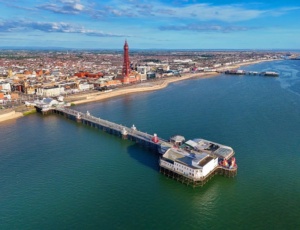How to Be an Eco-Friendly, Creature-Loving, Green-Fingered Goddess From January to December
 Listen up. It’s all well and good doing your bit for yourself, but are you doing enough to help your little corner of the planet? Much of our wildlife is under threat in the UK, and over-population, urbanisation, pesticides and pollution are doing nothing to make the problem any smaller. That’s where we come in.
Listen up. It’s all well and good doing your bit for yourself, but are you doing enough to help your little corner of the planet? Much of our wildlife is under threat in the UK, and over-population, urbanisation, pesticides and pollution are doing nothing to make the problem any smaller. That’s where we come in.
Particularly when you move into a new home (and the previous occupants have left the garden in quite a state!), or you decide to renovate your very own space, it can be difficult to figure out where to start! If you’ve ever fancied yourself as an eco-friendly, creature-loving, green-fingered goddess, this is your chance! Here’s how to get your back garden under control if you don’t know a spade from a trowel.
Garden design
First, think about the design of your garden. If you’re living somewhere urban, you probably have a patch of grass (or concrete!) the size of a postage stamp – but not to worry. There’s plenty you can do.
- Make room for a vegetable patch. Just mark up a little patch of soil that gets around five hours of sun every day. Dig the soil to one-and-a-bit spade’s depth, and fill it up with lots of good quality compost. Plant some lettuce or kale seedlings, leaving about 20cm between each, add water daily.
- Grow your own herbs. All you need to do is put some pre-bought herbs in pots outside and water them regularly. You can get small plant pots from your local garden centre if you don’t have too much space.
- Try shrubs. Plant five or more together in a clump to act as protective thicket for wildlife.
Garden management
- The most obvious way to be an eco-friendly goddess is to avoid use of harsh chemicals. Chemical pesticides and fertilisers aren’t doing the planet much good. If you’re going to use fertilisers, use compost or manure.
- Let the bugs do the gardening for you. Rove beetles eat decaying matter, including the bark on the ground, decaying fruit and dead animals. Aphid parasites kill off aphids, and it’s an eco-friendly and natural way of managing the bugs in your garden.
- Deal with pests properly. Naturally slugs, squirrels and rabbits will try to devour your plants, stealing your bird seed and making their way through your vegetable garden!
Slugs hate copper, so take a little bit of copper tape and wrap it around your plant pots to keep slugs and snails at bay.
Rabbits will be spooked away if you sprinkle a bit of bloodmeal around the garden (dried, ground animal blood and it’s available from garden centres). You can stop squirrels from stealing bird feed if you add a little bit of chilli powder to the soil.
Encourage wildlife into your garden
- Start by planting a variety of beautiful flowers – particularly those high in nectar. Choose pretty blooms, such as Sweet Williams, which were carried by Duchess of Cambridge on her wedding day. Or plant the kind that make you think of fancy French films – such as lavender, for instance. Bees rely on these flowers if they’re to do their jobs properly. They’re responsible for producing 75% of the world’s crops and 87% of wild flowering plants.
- Next, add a bird feeder. With species of birds under threat in the UK at the moment, every little thing you do to help will make a difference. Providing them with a consistent and enjoyable food source is a great way to help them thrive. Buy a decorative bird feeder from Wild Bird Feeders or a squirrel proof bird feeder and fill it with the foods your local birds love, such as nuts and seeds.
- Cut a hole in your fence for hedgehogs. One of the biggest reasons hedgehog numbers have declined in recent years is because we’re making our fences and boundaries too secure. For their size, hedgehogs have a huge appetite and need access to food. Solve their problem by cutting a hole the size of a CD case in the bottom of your fence, allowing them to come and go from your garden as they please.
Some may argue that some of these ideas require more space than others but if you only do a handful of the easy things you’ll be making a huge difference to your local eco-system. What are you waiting for? Get those gloves on!


